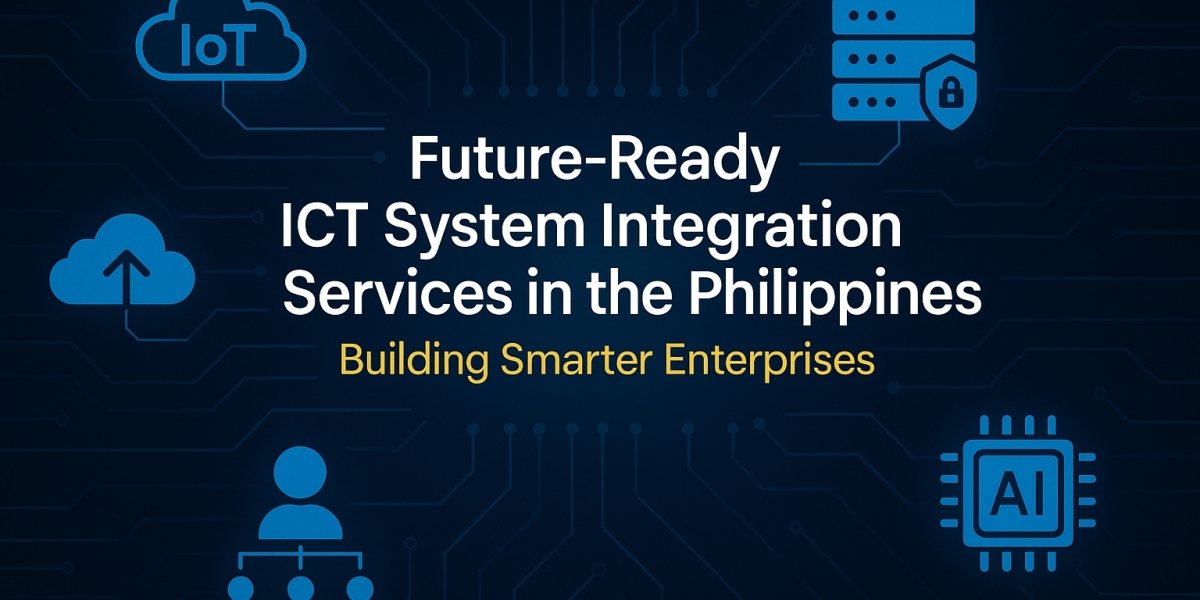Introduction to ICT System Integration
The Importance of ICT Integration for Modern Businesses
Key Components of ICT System Integration
Industries Benefiting from ICT Integration in the Philippines
ICT Challenges and How Integration Solves Them
SUNIWAY’s ICT System Integration Approach
Case Studies: Successful ICT Deployments
Future Trends in ICT Integration
Choosing the Right ICT Integration Partner
Conclusion
1. Introduction to ICT System Integration
ICT (Information and Communication Technology) system integration refers to the strategic process of unifying multiple IT and communication subsystems into a coordinated, efficient whole. In the Philippines, with the rapid expansion of digital infrastructure, ICT integration plays a crucial role in enabling businesses to scale, automate, and innovate.
As companies shift toward cloud services, AI, and IoT technologies, the need for seamless integration across servers, networks, software, and security frameworks becomes more vital than ever.
2. The Importance of ICT Integration for Modern Businesses
Integrated ICT systems eliminate operational silos by ensuring that various technologies—networks, security systems, data platforms, and business applications—work harmoniously. This results in:
Improved efficiency: Less time spent switching between systems
Cost reduction: Unified infrastructure cuts down on redundancies
Data-driven decisions: Centralized analytics platforms provide insights
Enhanced security: Cohesive cybersecurity protocols safeguard assets
Scalability: Easier to expand infrastructure as business grows
In a competitive Philippine business environment, companies that streamline their operations through integration gain a significant advantage.
3. Key Components of ICT System Integration
ICT integration isn’t a one-size-fits-all solution. It consists of several building blocks:
Networking & Structured Cabling: Fiber and UTP cabling that forms the backbone of communication
Data Centers & Cloud: On-premise server rooms or cloud migration for flexibility
Unified Communications: VoIP, video conferencing, PABX systems
IoT Integration: Real-time sensors for environment, energy, or security
Cybersecurity: Firewalls, endpoint protection, behavior analytics
Application Integration: CRM, ERP, and database systems synchronized across departments
Each component must be assessed, aligned, and managed through expert integration services.
4. Industries Benefiting from ICT Integration in the Philippines
ICT system integration brings value to various Philippine sectors:
Education: Smart classrooms, digital libraries, and e-learning platforms
Healthcare: Electronic medical records (EMR), nurse call systems, and telemedicine
Retail: POS systems, inventory tracking, and e-commerce integration
Manufacturing: IoT-powered automation and supply chain analytics
Government: E-governance platforms, secure communication systems
Hospitality: Smart building systems, high-speed internet, guest service platforms
Across urban centers like Metro Manila, Cebu, and Davao, ICT integration is transforming traditional operations into digital-first systems.
5. ICT Challenges and How Integration Solves Them
Organizations often face several ICT-related challenges:
Legacy system incompatibility
Data silos across departments
Downtime due to poor network structure
Inefficient communication channels
Cybersecurity vulnerabilities
By implementing comprehensive system integration, businesses can consolidate operations, improve uptime, and enhance agility in responding to market changes.
6. SUNIWAY’s ICT System Integration Approach
SUNIWAY provides customized ICT system integration services designed to meet the specific needs of Philippine enterprises. Our approach includes:
Assessment & Consultation: Detailed audit of current ICT infrastructure
Design & Engineering: Tailored system architecture for integration
Implementation: Structured cabling, server setup, unified communications
Testing & Optimization: Ensuring all systems work seamlessly together
Support & Maintenance: 24/7 monitoring and tech support
Whether it's setting up a server room or integrating a city-wide smart monitoring system, SUNIWAY ensures reliability and efficiency.
7. Case Studies: Successful ICT Deployments
Case 1: National Retail Chain – Metro Manila
SUNIWAY deployed a unified POS, CCTV, and internet network across 15 branches, improving transaction speed and real-time inventory tracking.
Case 2: University – Cebu
Integrated smart classrooms, campus WiFi, and digital security systems into a single management dashboard, enhancing student experience.
Case 3: BPO Facility – Davao
Designed and installed a fully redundant network infrastructure with integrated PABX and firewall protection, enabling 99.99% uptime.
8. Future Trends in ICT Integration
As technology evolves, ICT system integration is moving towards:
AI-Enhanced Operations: Automated workflows and predictive analytics
Edge Computing: Faster local data processing in IoT-heavy environments
Cloud-Native Platforms: Flexibility and cost-efficiency
Zero Trust Security Architecture: Strict access control frameworks
Green ICT: Energy-efficient networks and smart power systems
Early adopters in the Philippines will benefit from long-term operational advantages and customer satisfaction.
9. Choosing the Right ICT Integration Partner
Before choosing a partner for ICT system integration, businesses should consider:
Experience & Portfolio: Proven track record in relevant industries
Scalability: Ability to grow with your organization
Certifications: ISO, NTC compliance, and vendor partnerships
Support Infrastructure: Local support teams and proactive monitoring
Cost-Effectiveness: Clear ROI projections and transparent pricing
SUNIWAY checks all these boxes, offering full-spectrum ICT services with a commitment to excellence.
10. Conclusion
ICT system integration is no longer a luxury—it’s a necessity for businesses aiming to stay competitive in a digital-first world. In the Philippines, SUNIWAY stands out as a trusted provider of advanced, scalable, and secure ICT solutions that empower enterprises to grow efficiently.
With our customized services, experienced engineers, and commitment to quality, we help turn your fragmented systems into a well-oiled digital ecosystem.









